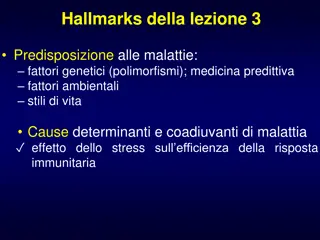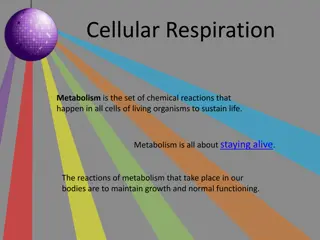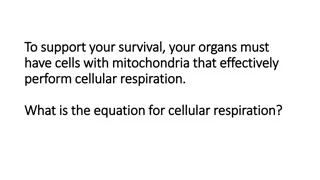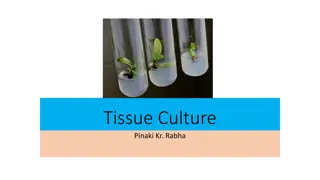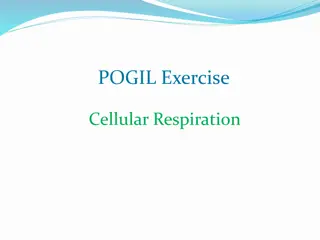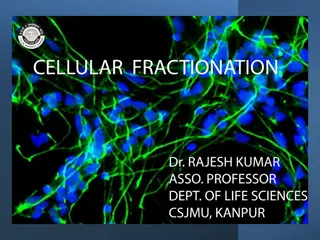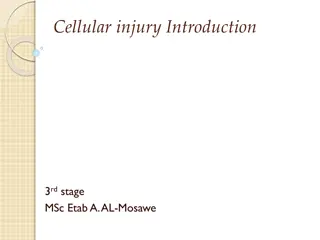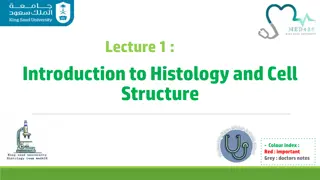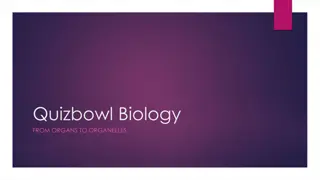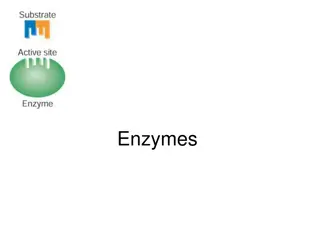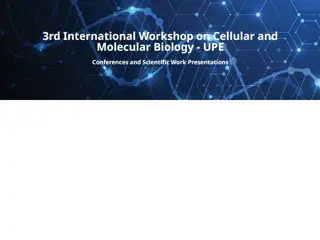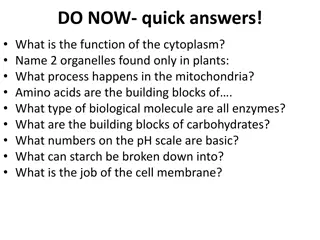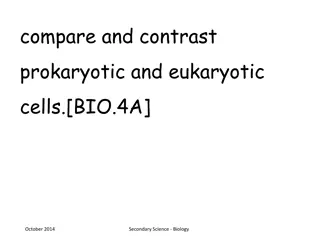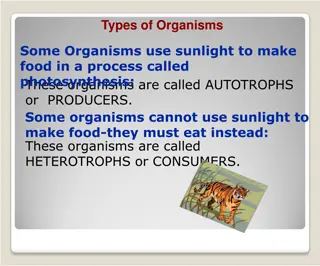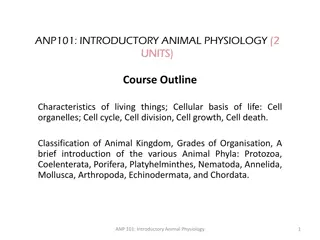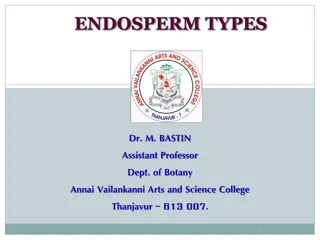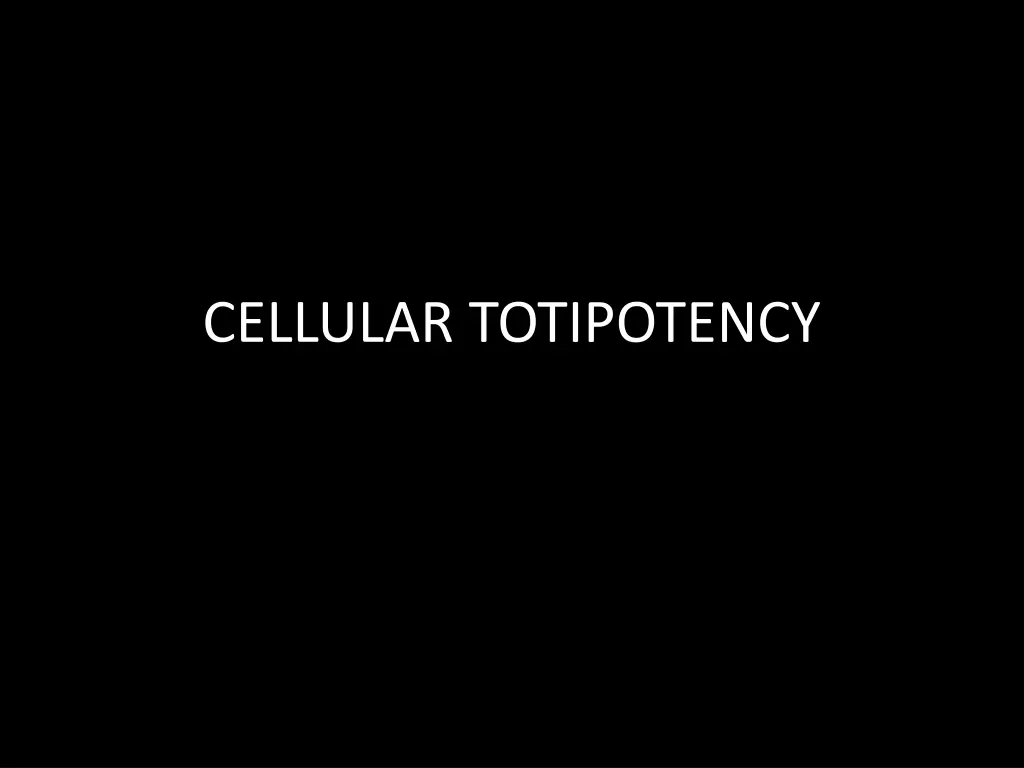
Cellular Totipotency: Understanding the Potential of Single Cells
Explore the intriguing concept of totipotency, where a single cell holds the genetic potential to give rise to an entire organism. Learn about the process of dedifferentiation and redifferentiation that allows isolated cells to express totipotency. Discover the history behind totipotency, including the groundbreaking work of Gottleib Haberlandt. Delve into culture systems such as callus culture and suspension culture used to study and harness the totipotent nature of cells.
Download Presentation

Please find below an Image/Link to download the presentation.
The content on the website is provided AS IS for your information and personal use only. It may not be sold, licensed, or shared on other websites without obtaining consent from the author. If you encounter any issues during the download, it is possible that the publisher has removed the file from their server.
You are allowed to download the files provided on this website for personal or commercial use, subject to the condition that they are used lawfully. All files are the property of their respective owners.
The content on the website is provided AS IS for your information and personal use only. It may not be sold, licensed, or shared on other websites without obtaining consent from the author.
E N D
Presentation Transcript
Introduction Totipotency is the ability of a single cell to divide and produce all of the differentiated cells in an organism. In other words, totipotency is the genetic potential of a plant cell to produce the entire plant.
Isolated cells from differentiated tissue are generally non dividing and quiescent; to express totipotency they undergo dedifferentiation and then redifferentiation
In Latin, totus means "entirely and "potens"means "having power". The possibility of regenerating an entire plant from a single or few non-zygotic cells was proposed by Gottleib Haberlandt (1854-1945) in 1902.
Haberlandt is now popularly called the Father of Tissue Culture.
CULTURE SYSTEMS Callus culture : Callus is an unspecialized, unorganized, growing and dividing mass of cells. Can be maintained indefinitely. Suitable for cytodifferentiation
Callus culture No photosynthesis Can be used to isolate single totipotent cells. Many cultures lose their potential for differentiation duting and grows in dark.
Callus culture continual subculture due to epigenetic changes. Difficult to follow many cellular events during its growth and developmental phases.
Suspension culture Type of culture in which single cells or small aggregates of cells multiply while suspended in agitated liquid medium. Receive more homogeneous stimuli in a defined medium supplemented with the requisite amount of inducers such as sugar or auxin.
Suspension culture Can be studied for the production of secondary metabolites such as alkaloids. Produce mutant cell clones from which mutant plants can be raised. Possible to analyse biochemical pathways related to differentiation of cells.
Single cell culture Method of growing isolated single cell aseptically on a nutrient medium under controlled conditions.
Single cell culture Can be isolated from a variety of tissue and organ of green plant as well as from callus tissue and cell suspension either mechanically or enzymatically Could be used successfully to obtain single cell clones.
Single cell culture Plants could be regenerated from the callus tissue derived from the single cell clones Isolated single cells can be handled as a microbial system for the treatment of mutagens and for mutant selection.
Single cell culture Single cell culture is an ideal system for the study of biotransformation
Protoplasts culture Protoplasts are naked plant cells without the cell wall, but they possess plasma membrane and all other cellular components. Isolated most frequently from mesophyll tissue of fully expanded leaves of young plants or new shoots, either mechanically or enzymatically.
Protoplasts culture The protoplast in culture can be regenerated into a whole plant. Hybrids can be developed from protoplast fusion.
Protoplasts culture It is easy to perform single cell cloning with protoplasts. Genetic transformations can be achieved through genetic engineering of protoplast DNA.
Protoplasts culture Protoplasts are excellent materials for ultra-structural studies. Isolation of cell organelles and chromosomes is easy from protoplasts. Protoplasts are useful for membrane studies (transport and uptake processes
Importance Vegetative propagation Germplasm preservation Seed Dormancy Embryo rescue Protoplast Fusion Haploidy Genetic modification

